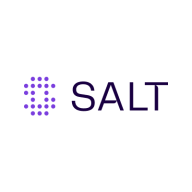

Salt Security and Akamai API Security are competing products in the API security market. While Salt Security is favored for its pricing and customer support advantages, Akamai's robust feature set and perceived return on investment make it a compelling choice for many tech buyers.
Features: Salt Security provides advanced threat detection and analytics, detailed insights into potential vulnerabilities, and strong security insights. Akamai API Security is recognized for superb integration capabilities, high scalability for enterprises, and a comprehensive security feature set.
Ease of Deployment and Customer Service: Salt Security offers a straightforward deployment process with responsive customer service. In contrast, Akamai requires a more complex deployment model, supplemented by extensive documentation to aid in setup. Salt Security benefits those prioritizing ease of implementation and support, while Akamai is well-suited for technically adept teams with access to robust resources.
Pricing and ROI: Salt Security has a competitive pricing model, ensuring strong ROI with its effective threat detection capabilities. Akamai API Security, though higher in initial cost, attracts those who value extensive features and comprehensive coverage. Despite Salt Security's more attractive initial pricing, Akamai's broader feature set often justifies its higher investment for organizations seeking extensive security solutions.
| Product | Market Share (%) |
|---|---|
| Akamai API Security | 9.8% |
| Salt Security | 7.7% |
| Other | 82.5% |

Akamai API Security offers robust protection against DDoS attacks and is highly valued for its efficient API throttling capabilities, allowing multiple users to manage traffic effectively. This ensures both optimal performance and enhanced security by controlling API access and utilization.
\n\nAkamai API Security excels in safeguarding APIs with its industry-leading throttling features, allowing multiple users to prevent overload and abuse. By managing traffic efficiently, users can maintain service availability even under high demand or potential attacks. While the platform successfully combines machine learning with API throttling in its developing URL protection feature, there\'s room for improvement, especially in preventing false positives from reputable sources and precisely detecting threats from malicious hosting providers.
\n\n**What are the key features of Akamai API Security?**\n
- **API Throttling**: Efficiently manage and control the flow of API requests, ensuring consistent performance and avoiding overloads.\n
- **DDoS Protection**: Robust defenses against distributed denial-of-service attacks, safeguarding the availability and reliability of services.\n
- **Machine Learning Integration**: Enhanced threat detection by distinguishing between legitimate and malicious API calls, refining security measures.\n
- **URL Protection**: Developing feature that combines machine learning and API throttling for advanced security, with a focus on refining accuracy.
**What benefits should be looked for in reviews when evaluating Akamai API Security?**\n
- **Improved Performance**: Reduced risk of API overloads and maintained service availability during high traffic periods.\n
- **Enhanced Security**: Strong defenses against DDoS attacks and abuse, ensuring data integrity and safe access.\n
- **Efficient Traffic Management**: Smarter throttling mechanisms equipped to handle large volumes of requests, prioritizing legitimate usage.\n
- **Advanced Threat Detection**: Utilization of machine learning to better identify and respond to security threats.
Implementation of Akamai API Security across industries varies. For example, e-commerce platforms benefit from its robust DDoS protection and API throttling, ensuring customer transactions remain secure and services available during peak shopping times. Financial service companies use its machine learning capabilities to detect and block suspicious activities, preserving the integrity of client transactions while managing large volumes of API calls. Media streaming services leverage its ability to prevent overload, providing uninterrupted streaming experiences even during high demand events.
The Salt Security API Protection Platform secures the APIs at the heart of all your modern applications. The platform collects API traffic across your entire application landscape and makes use of AI/ML and a big data engine to discover all your APIs and their exposed data, stop attacks, and eliminate vulnerabilities at their source.
We monitor all API Security reviews to prevent fraudulent reviews and keep review quality high. We do not post reviews by company employees or direct competitors. We validate each review for authenticity via cross-reference with LinkedIn, and personal follow-up with the reviewer when necessary.